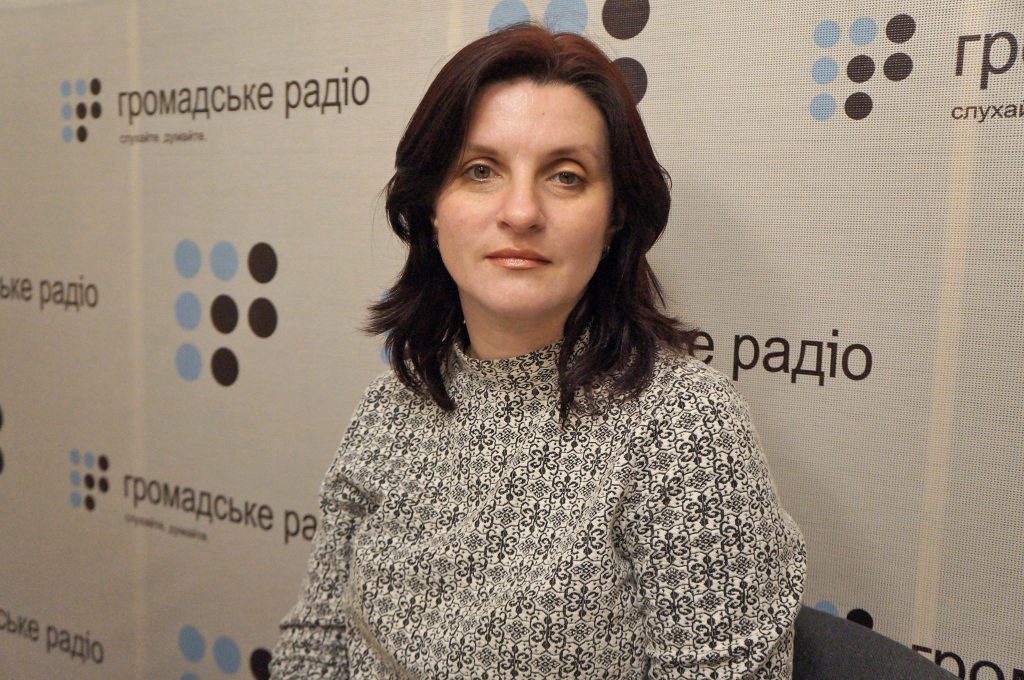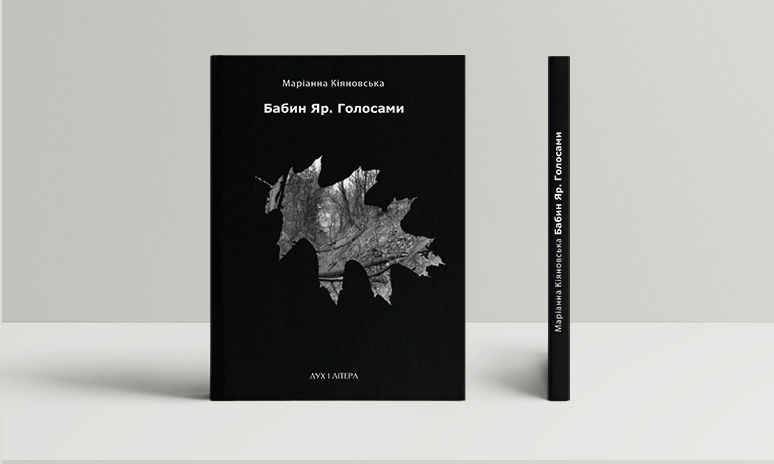Every voice resounds, to be heard by someone later: Marianna Kiyanovska

Our guest in the studio is Marianna Kiyanovska, a Ukrainian poet, translator, and member of the National Writers’ Union of Ukraine and the Ukrainian branch of PEN. In 2020 she was awarded the Shevchenko Prize for her poetry collection Babyn Yar. In Voices, which was published in collaboration with the Centre for Studies of the History and Culture of East European Jews at Kyiv-Mohyla Academy.
Iryna Slavinska: Is there still a need to explain what Babyn Yar is?
Marianna Kiyanovska: I was once very moved by the quotation, “Poetry is a place on Earth.” I think that in the case of this book (Babyn Yar. In Voices—Ed.), it is a place on Earth, but not in the real sense of the Kyivan Babyn Yar. This is a place on Earth that is connected to cultural and historical myths. For very many years in the post-Soviet space, when there was no possibility to talk about this, that’s when mythologization, myth-creation, always begins as the work of culture. This book performs a kind of work in the history of a culture, which was not done by anyone previously. Babyn Yar left behind fewer living witnesses than meanings.

About the book as a terrorist act
Marianna Kiyanovska: This book, which is inside everything that surrounds it, is a terrorist act. It attracts attention. It works through triggers of blood, violence, and death. We forget that the word “lustration” is translated from the Latin as “sacrifice,” that is, purification through sacrifice.
I think that this book contains this very mechanism of lustration, of purification. If we open ourselves up to these texts, if we absorb those conditional people who are the voices of this book, then the mechanism of lustration takes place. For far too long, we did not perceive a certain situation involving tens and hundreds of thousands of victims.
Terror is terror because it chooses a single entity or more as its victim. If five are not killed but a hundred thousand, then this is war; this distinguishes terror from war. This book is not about ethics, although when I was writing it, I wasn’t thinking about its goal at all. I simply let myself be a tool.
Iryna Slavinska: “Terrorist attack” in French means “fear.” [sic] Does the book Babyn Yar. In Voices talk about fear?
Marianna Kiyanovska: It certainly cannot be read without a sense of fear. Terror is always the death of entities. When there are many who have been destroyed, we cannot say that a concentration camp is terror; a completely different mechanism is at work there. The paradox lies in the fact that when there is a mechanism of terror, a will to live remains. In other mechanisms of mass destruction, the will to live disappears. Why were the prisoners in the death camps able to take down the guards? Examples include the uprisings in the GULAG, or Sobibor. Physically, this is not comparable to the number of people with weapons. In a concentration camp, the will to live disappears.
Babyn Yar. In Voices is a book that, through the mechanisms of fear and some sort of ultimate experience of a threshold, works with the future. I think that this book, compared to many others, is more preoccupied with the future than you can imagine.
Iryna Slavinska: What is the collection Babyn Yar. In Voices armed with for the future?
Marianna Kiyanovska: I once gave an interview and said that I think this book will stop a war. Now I am surer of this than ever because modern civilization in this sense rejects reason. Reason, of which there was very much in the previous few decades, has been exhausted; we are tired of rationality now.
Every voice resounds, to be heard by someone later. There is no point in talking if you are not heard. Even the fact that they are like voices, they are already directed toward the future.
It may not be on the surface, but in each of these voices, there is a return to small things that become essential. I think it is very life-affirming, and this is what brings us back to humanity, to enjoy the color of the sky. This book creates a discourse; I think it has created a genre. We can read Voices from the perspective of descendants. If all this is stated correctly, then I think it will bring a lot of new meanings. I hope so.
Iryna Slavinska: Is the Holocaust theme present in Ukrainian literature?
Marianna Kiyanovska: It seems that it is on the level of readiness for discourse. I think that in terms of books that are actually read, no work has been done at all on this topic. You cannot compare [this] either with Germany or the U.S., but on the level of readiness for discourse, this theme is now present. This can be compared to how [Friedrich] Nietzsche appeared in European culture. There was Nietzsche, who was read by almost no one, but who was suddenly being discussed by everyone. After five, ten, fifteen years, Nietzsche was finally read, but first, there was a readiness for discourse.
Our society is at the point where, if there is no overlapping of discourse with another project, any conscious process, as it happened in Russia, then within ten to fifteen years the Holocaust theme, the Holodomor theme, and other difficult topics will become full-fledged discourses with books read, a certain background, a certain number of books written. I started involuntarily tallying what has been published, and in the last twenty-five years, there is very little.
This program is created with the support of Ukrainian Jewish Encounter (UJE), a Canadian charitable non-profit organization.
Originally appeared in Ukrainian (Hromadske Radio podcast) here.
Translated from the Ukrainian by Marta D. Olynyk.
Edited by Peter Bejger.
NOTE: UJE does not necessarily endorse opinions expressed in articles and other materials published on its website and social media pages. Such materials are posted to promote discussion related to Ukrainian-Jewish interactions and relations. The website and social media pages will be places of information that reflect varied viewpoints.



















